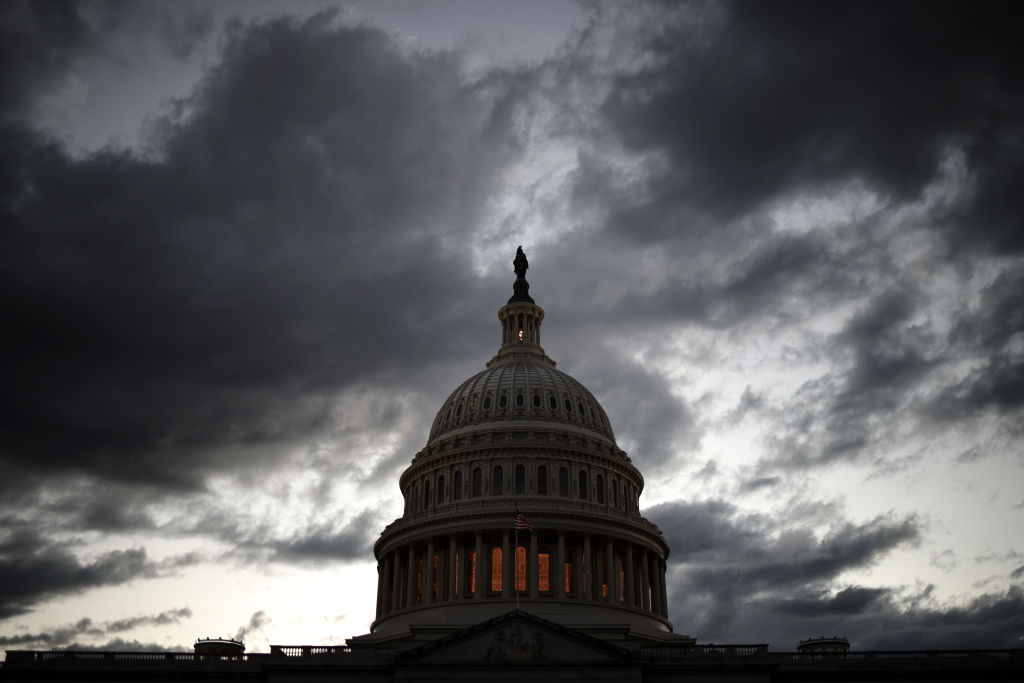Why a deeply divided Senate may be a greater threat to Democrats than Republicans


A free daily email with the biggest news stories of the day – and the best features from TheWeek.com
You are now subscribed
Your newsletter sign-up was successful
If you are one of the few Americans paying attention to the happenings on Capitol Hill as of late, you might feel frustrated or even baffled at the legislative hold-up, particularly in the case of the 50-50 Senate (which Democrats control with Vice President Kamala Harris' tie-breaking vote).
Unluckily for Senate Democrats, however, the chamber's deep partisan divide (and resulting inability to get much done) likely bodes most ominously for them in the long-term, for a few reasons, writes Ronald Brownstein for CNN.
First off, Democrats "typically try to pass more legislation than Republicans," Brownstein writes. But on top of that, the "core trend" behind the polarization — which is the "increasing alignment of presidential and Senate outcomes in the states" — "tends to magnify Republican influence in the chamber."
The Week
Escape your echo chamber. Get the facts behind the news, plus analysis from multiple perspectives.

Sign up for The Week's Free Newsletters
From our morning news briefing to a weekly Good News Newsletter, get the best of The Week delivered directly to your inbox.
From our morning news briefing to a weekly Good News Newsletter, get the best of The Week delivered directly to your inbox.
More specifically, Democrats have a "much broader legislative agenda" than the GOP and its filibuster-proof goals of cutting taxes and appointing judges and justices. "As long as the filibuster remains in place, a bigger share of the Democratic legislative wish list — everything from immigration to gun control and voting rights — requires 60 votes," writes Brownstein.
Furthermore, Democrats represent "a more diverse electoral coalition," and therefore have a "broader ideological range" among their senators than Republicans. This lends itself to divide and sometimes inaction.
And finally, in terms of the maximum number of winnable Senate seats under normal circumstances, Democrats likely have a slightly lower ceiling than Republicans — despite Democrats faring well in presidential elections in the last two decades, Republicans have "won slightly more states a majority of the time" during that same period, writes Brownstein.
So what options do Democrats have? Filibuster carve-outs could be a good place to start, said former Sen. John Breaux (D-La.), a centrist. "That at least would help get some things done."
A free daily email with the biggest news stories of the day – and the best features from TheWeek.com
Brigid Kennedy worked at The Week from 2021 to 2023 as a staff writer, junior editor and then story editor, with an interest in U.S. politics, the economy and the music industry.
-
 ‘Those rights don’t exist to protect criminals’
‘Those rights don’t exist to protect criminals’Instant Opinion Opinion, comment and editorials of the day
-
 Key Bangladesh election returns old guard to power
Key Bangladesh election returns old guard to powerSpeed Read The Bangladesh Nationalist Party claimed a decisive victory
-
 Judge blocks Hegseth from punishing Kelly over video
Judge blocks Hegseth from punishing Kelly over videoSpeed Read Defense Secretary Pete Hegseth pushed for the senator to be demoted over a video in which he reminds military officials they should refuse illegal orders
-
 Judge blocks Hegseth from punishing Kelly over video
Judge blocks Hegseth from punishing Kelly over videoSpeed Read Defense Secretary Pete Hegseth pushed for the senator to be demoted over a video in which he reminds military officials they should refuse illegal orders
-
 Trump’s EPA kills legal basis for federal climate policy
Trump’s EPA kills legal basis for federal climate policySpeed Read The government’s authority to regulate several planet-warming pollutants has been repealed
-
 House votes to end Trump’s Canada tariffs
House votes to end Trump’s Canada tariffsSpeed Read Six Republicans joined with Democrats to repeal the president’s tariffs
-
 Bondi, Democrats clash over Epstein in hearing
Bondi, Democrats clash over Epstein in hearingSpeed Read Attorney General Pam Bondi ignored survivors of convicted sex offender Jeffrey Epstein and demanded that Democrats apologize to Trump
-
 El Paso airspace closure tied to FAA-Pentagon standoff
El Paso airspace closure tied to FAA-Pentagon standoffSpeed Read The closure in the Texas border city stemmed from disagreements between the Federal Aviation Administration and Pentagon officials over drone-related tests
-
 Judge blocks Trump suit for Michigan voter rolls
Judge blocks Trump suit for Michigan voter rollsSpeed Read A Trump-appointed federal judge rejected the administration’s demand for voters’ personal data
-
 US to send 200 troops to Nigeria to train army
US to send 200 troops to Nigeria to train armySpeed Read Trump has accused the West African government of failing to protect Christians from terrorist attacks
-
 Grand jury rejects charging 6 Democrats for ‘orders’ video
Grand jury rejects charging 6 Democrats for ‘orders’ videoSpeed Read The jury refused to indict Democratic lawmakers for a video in which they urged military members to resist illegal orders
